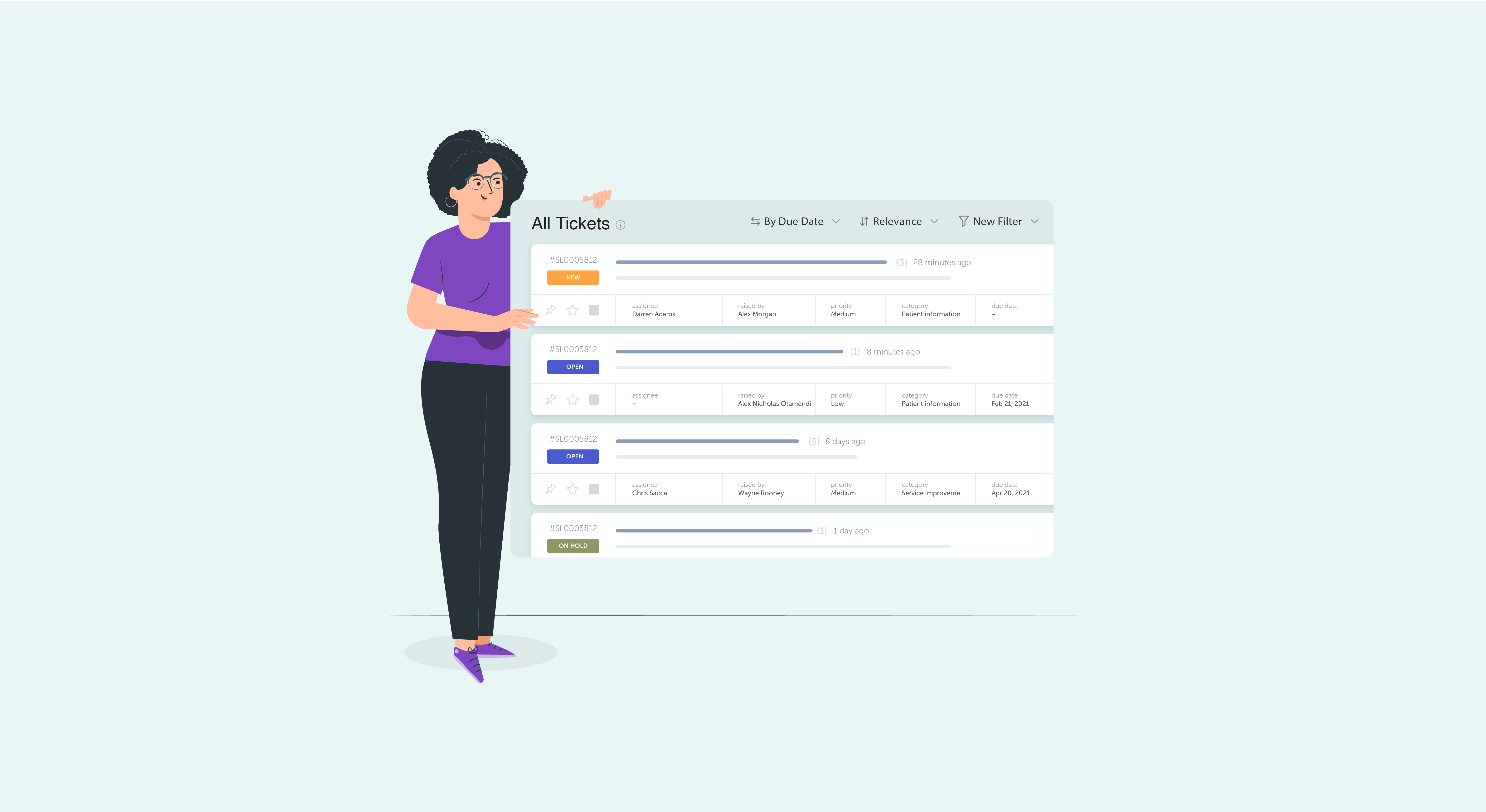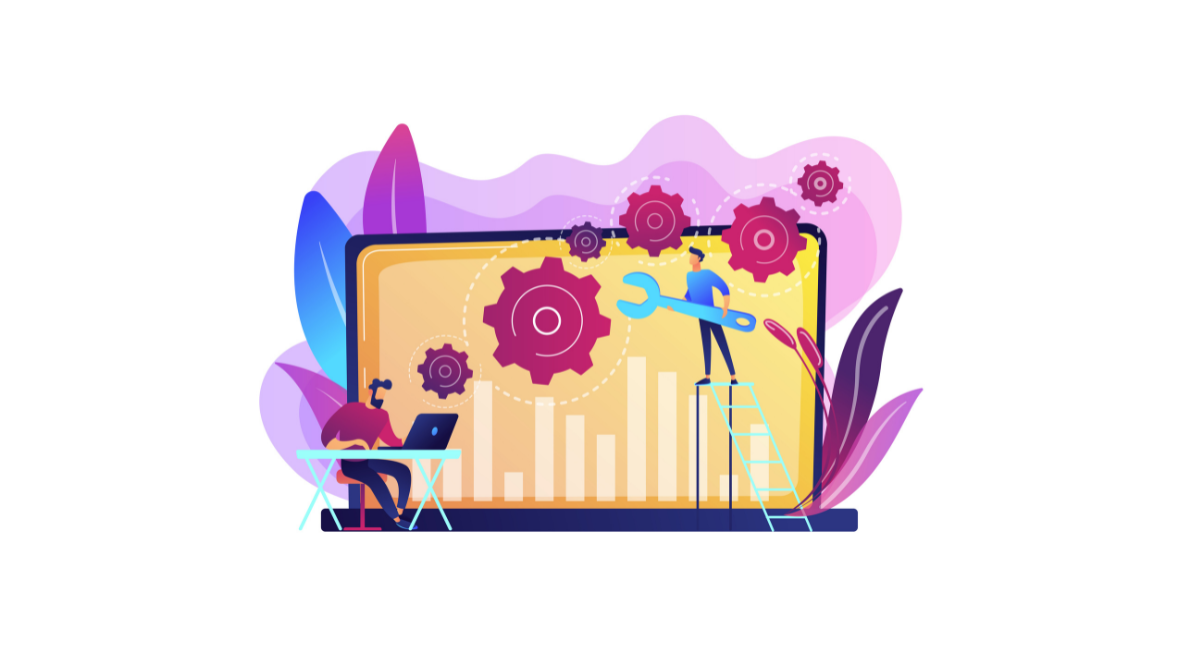An important objective for any business is to improve the caliber of customer support they provide. This is especially true for small to medium businesses that need to build trust and a strong reputation so that their customers choose them over their competitors.
Being able to answer questions efficiently and round the clock, comply with special requests, and deliver customer satisfaction is extremely important. While you might now think that a shared inbox is the most simple and cost-effective way of handling customer requests, its drawbacks become apparent once your business starts to expand. If your small-medium business (SMB) is still using a shared inbox as means to address customer questions, you’re most likely facing the following challenges.
Customer Support challenges faced by SMBs
1. Inability to manage ticket inflow
As your business grows, the volume of queries and issues also increases. Your customers start reaching out to you via multiple channels like email, social media, and forums and you now have a scattered collection of unanswered queries.
2. Repetitive tasks draining your team’s energy
As a small business with limited time and resources, you probably often find yourself pressed for time. Your team has to repeatedly answer trivial questions on multiple messaging channels, consuming a large chunk of time. Lack of visibility could even lead to multiple agents responding to the same service request.
3. Convoluted and inconsistent support
As your team size increases, you start realizing that collaboration is restricted, and toggling between multiple applications is eating into your time. Even if you can answer all queries, you have no sure way of knowing how effective your support efforts are.
What is a Help Desk?
Any business has multiple ongoing conversations, with many people, on a collection of channels at any given time. A service desk or help desk software centralizes and stores all customer interaction into one interface as tickets and gives businesses an opportunity to categorize the tickets based on a variety of metrics. Its functionalities like automation, knowledge management, asset management, escalation features, reporting, and self-service tools can help you vastly improve your customer experience while they save your support team time and give them the opportunity to focus on more pressing tasks.
Choosing a help desk
Choosing the right help desk for your business can be difficult, due to the ocean of options available out there. There are some simple steps you can follow. Read more.
Why do small-medium businesses need a help desk?
The inability to provide consistent, effective, and timely customer support reflects poorly on your brand and will affect your customer’s experience. Here is where help desks enter the conversation. A good help desk support solution gives your customers an improved, professional experience and your agents simplified, hassle-free operations. It helps you better understand your customers and brings about better issue management and faster resolution.
1. It can help you increase customer satisfaction rates
According to Forrester, it is five times more costly to acquire a new customer than it is to retain one. As a small business, you have to ensure that you meet the needs of your existing customers while you try to gain new ones. A multi-channel help desk software can centralize queries from all channels to one place, making it easier for you to queue, view, and resolve them based on status, priority, due date, and other metrics. Having a single point of contact ensure that everything can be tracked and no tickets are missed or service level agreements (SLAs) are breached. Therefore, increasing your customer satisfaction and retention rates.
2. It scales with your organization
For any business, especially an SMB, scalability is of prime importance. In anticipation of your company’s growth, increase in number of team members, and the increase in the volume of customer queries, you should ideally have a customizable help desk setup in place that you can build upon over time. The right help desk solution will integrate with applications like CRM, accounting systems, feedback survey tools, social media platforms, and project management software and serve you even as you grow your business and require more technical support.

3. It helps you achieve more in less time
With a help desk that supports automation, your support agents won’t be engaged with trivial and repetitive tasks. Prioritize issues so you can choose where you spend your time by setting up workflows, auto-routing, and automated processes. Such features under ticket management will help you solve multiple issues at the same time. Utilizing internal and external self-service tools like FAQ pages and knowledge base systems can bring about seamless information sharing and rapid training. You don’t only improve your response time, but you also save on manpower costs and increase team productivity.
4. It brings about efficient management and tracking
A good help desk solution helps you organize your support system in more ways than just receiving, managing, and helping you resolve your customer requests. It can store and profile previous conversations, customers, and assets in an orderly fashion, helping you gain insights into your support operations for future reference. You don’t have to rely on spreadsheets anymore, thus reducing errors. The context you gain will improve your troubleshooting capabilities and help you serve your customers better.
An ideal help desk is one that can understand the business needs, requirements, and constraints specifically faced by SMBs and provide a flexible and budget-conscious solution that will help you deliver great support experiences for your end-user.
5. It drives data-driven decisions
For your small business, a small data-driven tweak in the business process can lead to huge improvements. Being able to monitor SLAs, agent response times, and ticket inflow metrics with reporting and analytics features can be a game-changer for your business. An appropriate ticketing system can help your help desk agents gauge the service quality and also make decisions that will help you optimize your support process.
6. It can play a role in increasing your revenue
The core aim of any business is to increase revenue and make profits. A help desk system that successfully leads you to provide exceptional customer service will eventually result in happy customers. That translates to higher brand loyalty and repeat customers. If you can reel in repeat customers, you can boost your revenue and profits.
Improve all-round service experience
For many small and medium businesses, price is an important factor that is discussed while purchasing help desk software. HappyFox Help Desk for SMBs can understand the business needs, requirements, and constraints specifically faced by SMBs and provide a flexible and budget-conscious solution that will help you deliver great support experiences for your end-user.








